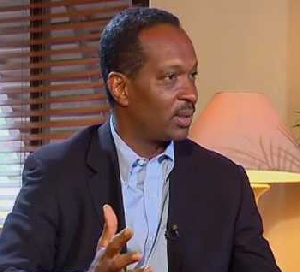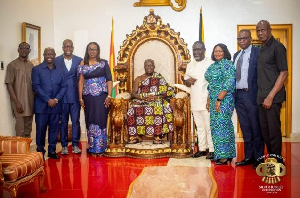- Home - News
- TWI News | TV
- Polls
- Year In Review
- News Archive
- Crime & Punishment
- Politics
- Regional
- Editorial
- Health
- Ghanaians Abroad
- Tabloid
- Africa
- Religion
- Election 2020
- Coronavirus
- News Videos | TV
- Photo Archives
- News Headlines
- Press Release
Business News of Friday, 30 August 2013
Source: B&FT
VRA seek investors for subsidiaries
The Volta River Authority (VRA) is seeking investors for its non-core businesses as part of measures to reduce overhead costs and improve focus on its core business of power generation.
The Authority is expected to start inviting offers from potential investors to take a majority shareholding in a subsidiary, the Volta Hotel, shortly. It is also seeking an investor for its Dodi Island Park project.
It has also set up a subsidiary, Property Company of VRA (PropCo), in which all of the company’s landed properties are now vested. PropCo is responsible for managing current landed properties and will undertake future commercial property developments.
The Volta Lake Transport Company, the Akosombo International School, and the VRA Hospitals are the other subsidiaries.
“We must find strategic investors to partner us. We hope in the next few months we’ll find a good partner for the hotel and the real-estate projects that we have. Our thinking is that this will be majority partners who will have a majority interest and run the business. VRA will step back, have minority share, earn our dividends and focus on our core business,” Kweku Andoh Awotwi, Chief Executive Officer, said.
“If we are successful and we are able to find investors for all these business, they will cover their cost and we won’t pass it on to the Ghanaian consumer. The VRA will then focus on its core business of power generation.”
He said the VRA aims to transform its subsidiaries into profitable entities managed by people with the requisite expertise.
“I think the Public Utilities Regulatory Commission (PURC) and others have a good point about our inefficiency, and when you see our numbers our primary objective is to minimise those inefficiencies -- including ceding majority control in our subsidiary companies to investors so people will get value for money,” Mr. Awotwi said.
The VRA has applied to the PURC for a 128 percent increase in its power tariff. The company, during the period of load-shedding between September 2012 and June 2013, was procuring US$15million of crude oil every 14 days. It now procures US$15million of crude oil every 30 days.
“But there is an even more important reason why the tariff must change. In the period that we didn’t have money, it actually slowed down a lot of our current projects because we didn’t have the cash,” Mr. Awotwi said.
“We are building a 200-megawatt project in the Kpone area. A few months ago, we stopped it because we didn’t have the money. So the project that was supposed to be completed by 2014 will now be completed around January of 2015.
These are the effects of slowing down on passing tariffs. It’s not just about affordable electricity; it’s about having enough electricity.”











